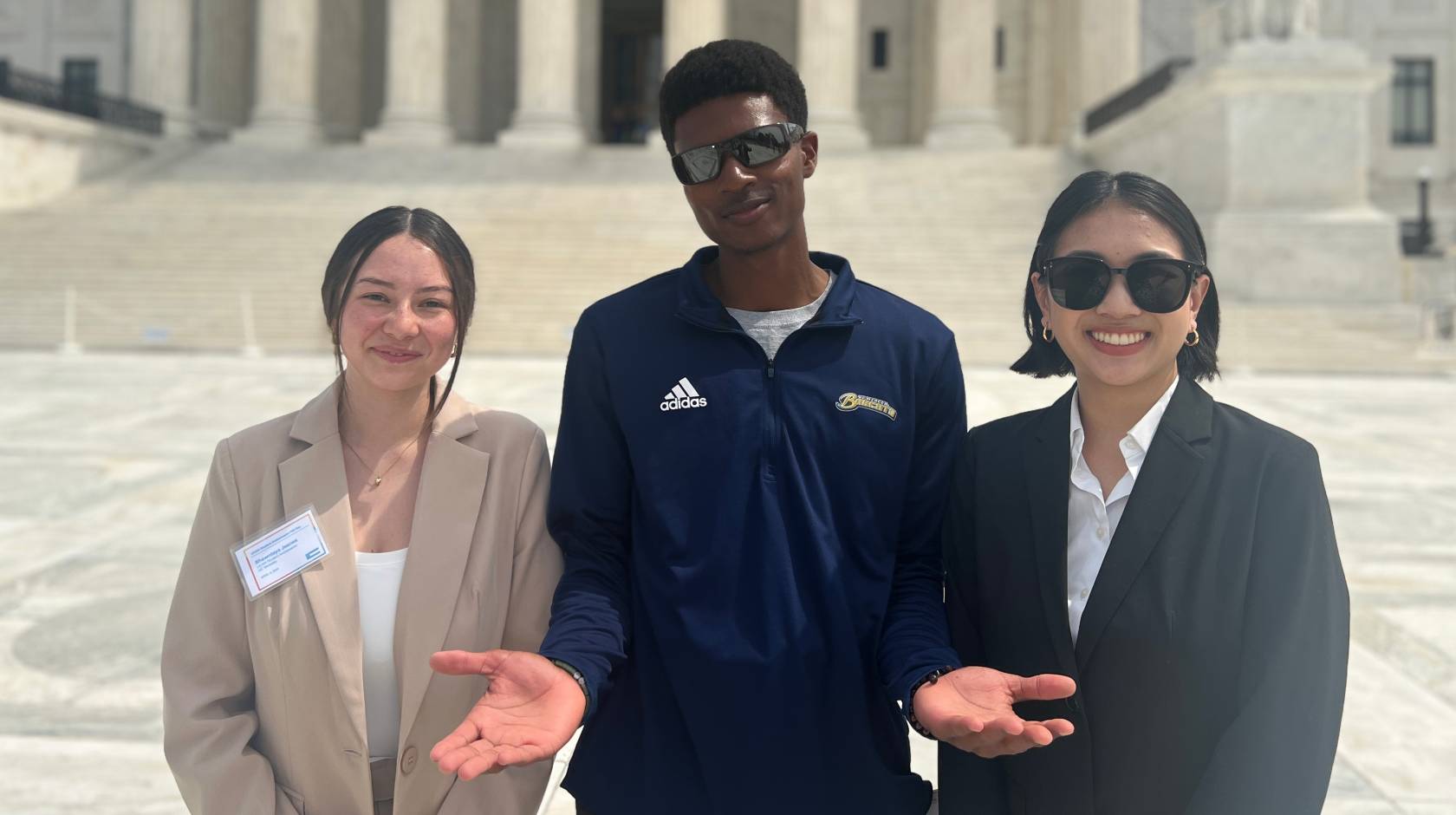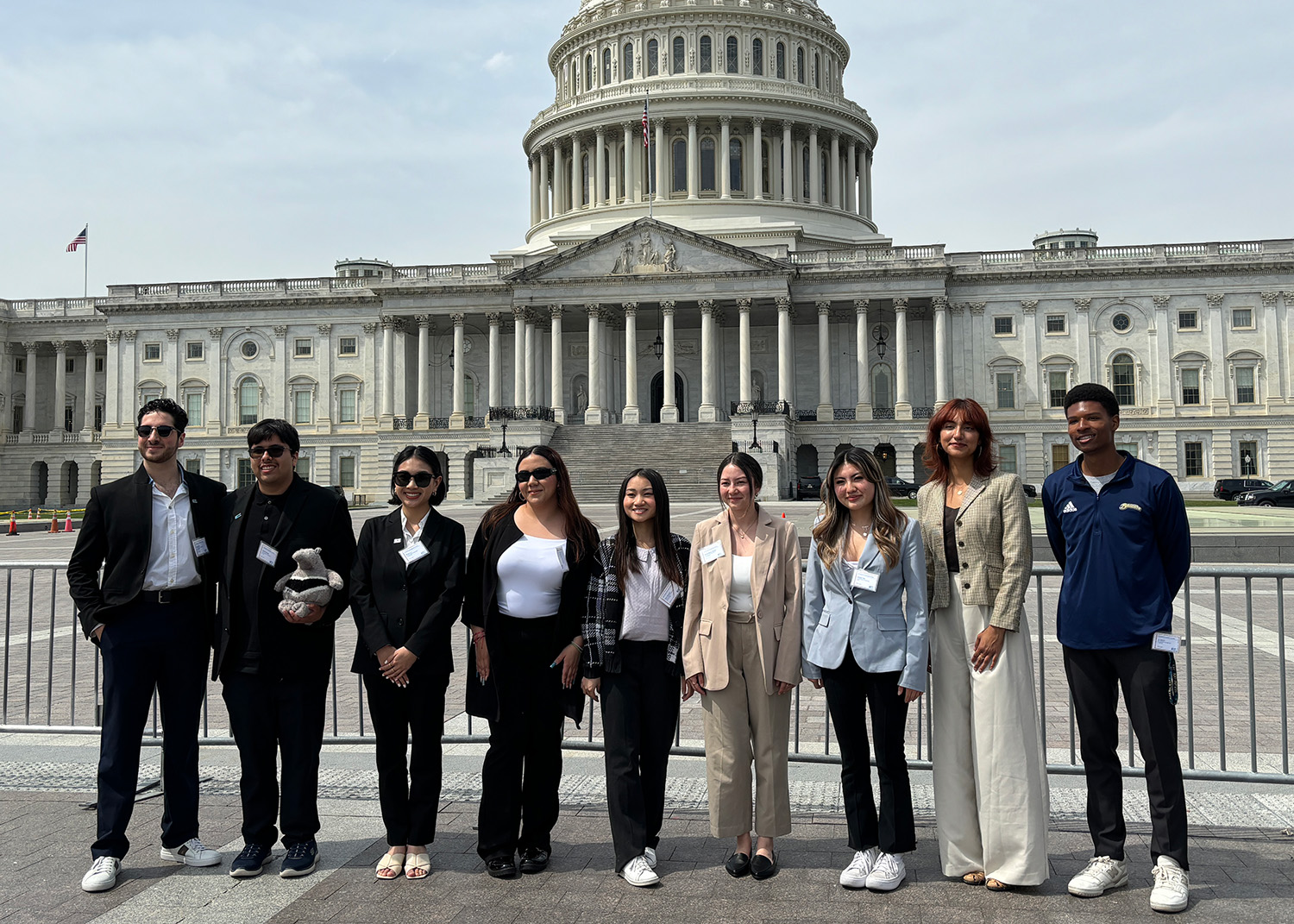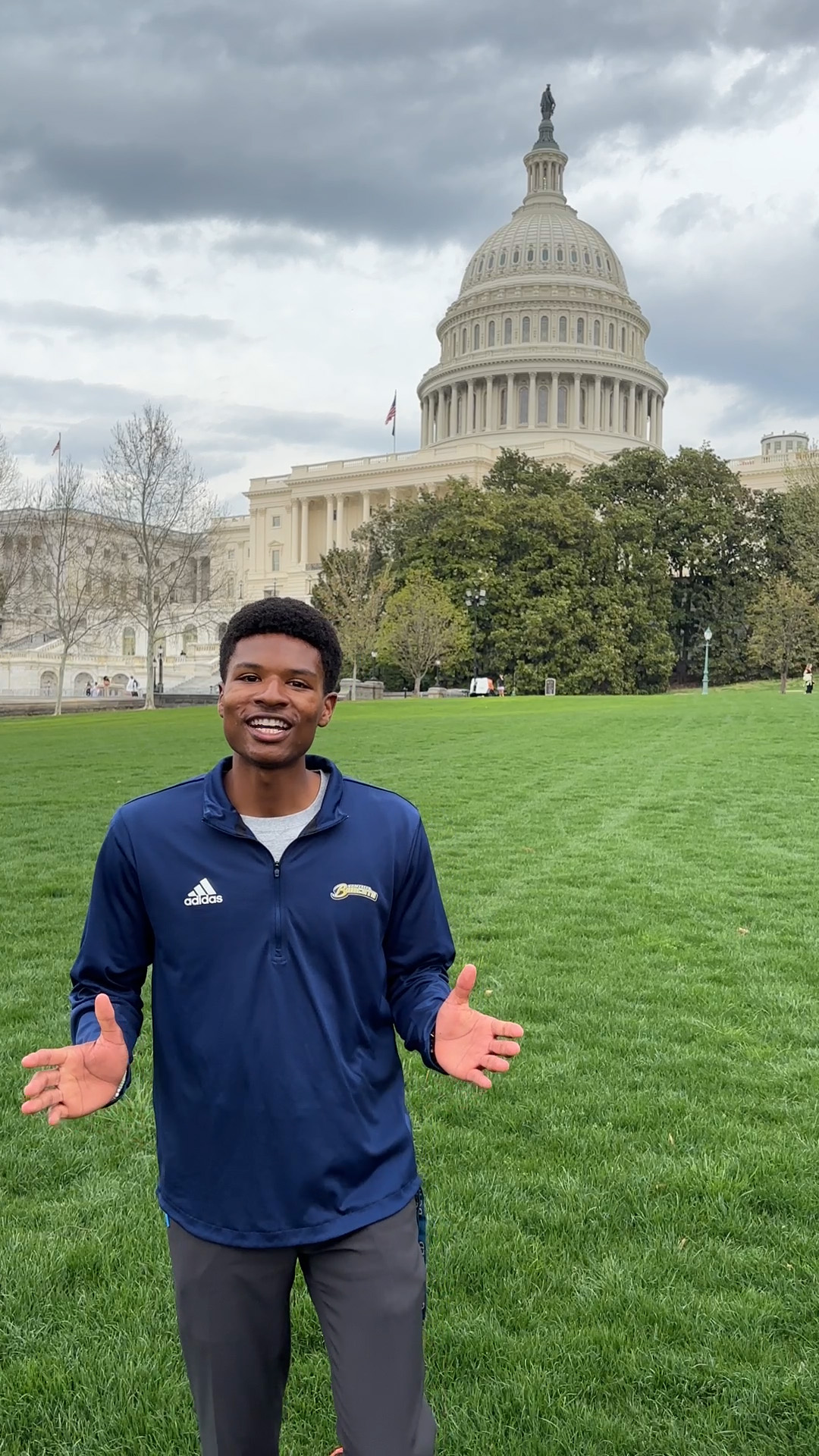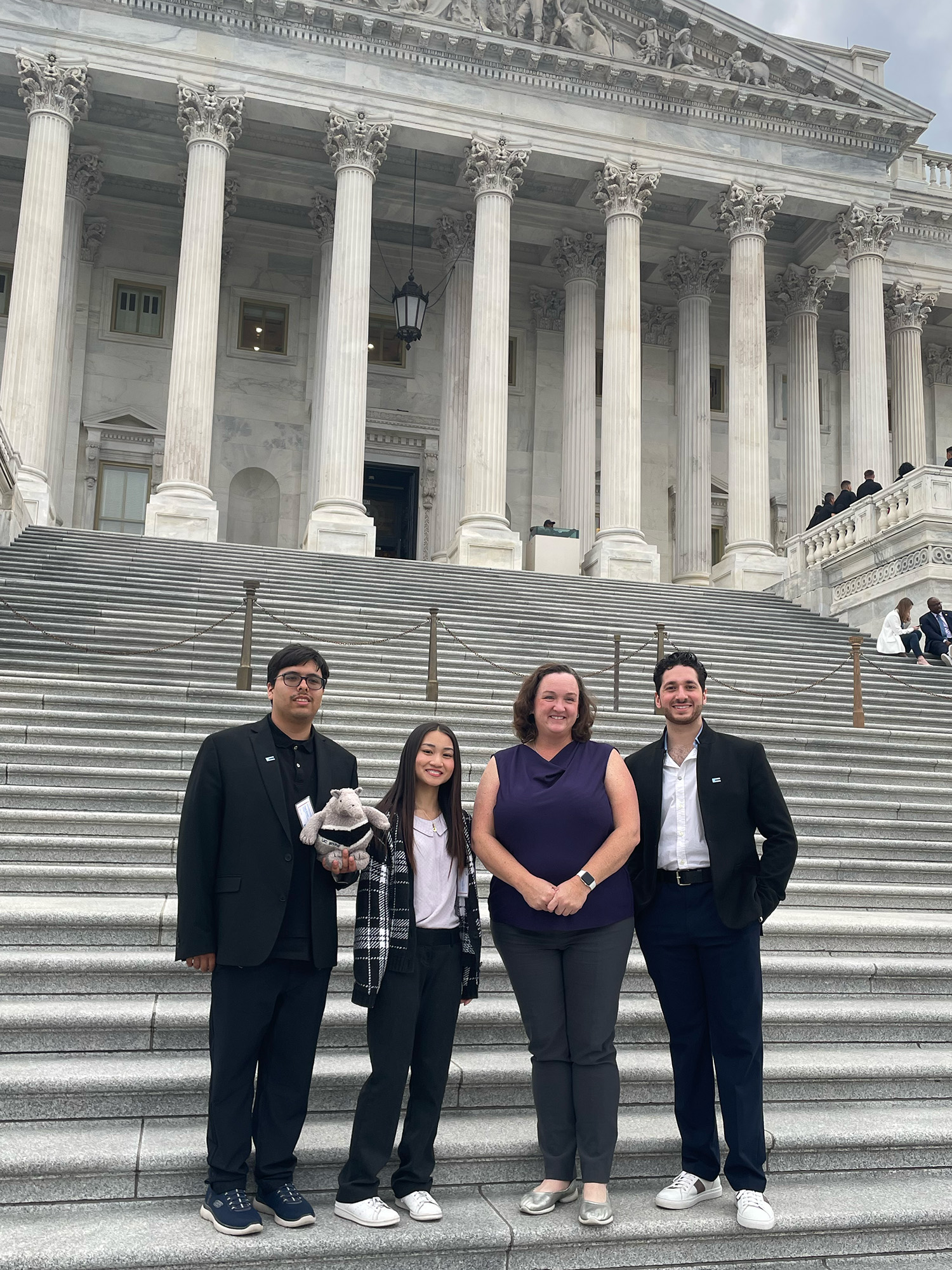Julia Busiek, UC Newsroom

AJ Heard says he’d never have even considered applying to the University of California if it wasn’t for the Pell Grant.
The third-year civil engineering student at UC Merced is among nearly 7 million Americans who rely on this federal financial aid program. But public investment in Pell hasn’t kept pace with rising college costs — and the 1 in 3 UC students who rely on the program are feeling the squeeze.
“We need something to fill this gap and take this stress off of students so we can just focus on our studies,” says Heard. He knows a thing or two about maintaining focus: he balances a demanding engineering course load and a job as an undergraduate researcher, and is founder and president of Bobcat Community Builders, a student organization on a mission to alleviate homelessness and reduce food waste in Merced. This year, Heard added another extracurricular to his packed schedule: he’s volunteering as a UC Advocacy Network Student Ambassador, alongside students from across the system who advocate on behalf the University and its students with government leaders in Sacramento and Washington.
Earlier this month, Heard was among nine UCAN Student Ambassadors who traveled to Washington to make the case for federal policies that directly affect large numbers of UC students. Over two days, Heard and his fellow ambassadors met with elected officials or their staffs. They shared their own experiences and stories they’ve heard from students back on their campuses.

Speaking up for Pell Grants, basic needs assistance and FAFSA fixes
In each meeting, ambassadors advocated for three policies that could help solve some of the biggest problems faced by college students, at UC and across the country.
First, they made the case for increasing investment in the Pell Grant program, so recipients would be eligible for a maximum of $14,800 in tuition assistance each school year and index future grant caps to inflation.
“A generation ago, the Pell grant covered 75 percent of tuition costs for recipients, and now it’s only 30 percent,” Heard says. “Our ask to double the Pell would still not get us to that 75 precent mark that it used to be, but it would be much better than what it is now.”

UC Merced third-year engineering student AJ Heard
Next, ambassadors advocated for the Basic Assistance for Students in College (BASIC) Act, which would establish a competitive grant to help colleges cover some costs for housing and food for students struggling to make ends meet. Although this legislation has not yet been introduced in this Congress, the ambassadors urged members to learn more about it and sign on as a co-sponsor once it is reintroduced. As part of his ambassador role, Heard has spent much of the school year speaking with UC Merced students about the challenges they’re facing. Through dozens of these conversations, he’s learned about many of the resources the campus does provide to ease students’ financial stress.
“We actually have a pretty solid system for helping students meet these basic needs at UC Merced, so much so that other universities come and want to mimic what we offer,” Heard says. “Still, it’s just limited: there are only so many people per week that are able to use our food pantry, for instance, and once that those slots are all filled up, you can't go.”
Finally, ambassadors told lawmakers about the consequences of the tumultuous rollout of the updated FAFSA form, and urged Congress to continue working with the Department of Education on fixes.
“The FAFSA process was really difficult this year,” says Tara Nguyen, a student ambassador who’s in her second year at UC San Diego. Nguyen shared stories from her own experiences as a first-generation student, and reminded them that roughly a third of UC students are also first-generation, and that the delays and confusion have been particularly challenging for students whose families have never been through this process before.
Representing UC students in D.C. and beyond
Heard recognizes that when lawmakers hear directly from students, it has a unique power to keep policies moving forward. “I’ve heard so many stories from students this year, and I feel like our advocacy brought those stories to light,” he says. “Most of the students who shared their stories with me aren’t going to be able to speak to the people I spoke to in D.C., so I just wanted to relay their voices.”
“Honestly, I was pretty nervous going into the meetings. I had a little script prepared and everything,” Nguyen says. Some staff members already had a detailed understanding of the policies Nguyen was advocating for, so the conversations were a chance for the ambassadors to learn what’s already being done about these issues in D.C., as well as for policymakers to learn more about the people who stand to benefit. “Our interactions with members and staff were a lot more conversational than I thought they’d be. The staff members really did just want to engage with us and learn from us,” she says.

UCAN Student Ambassadors Frank Granda, Tara Nguyen and Nima Elie meet with Calif. Representative Katie Porter in Washington.

